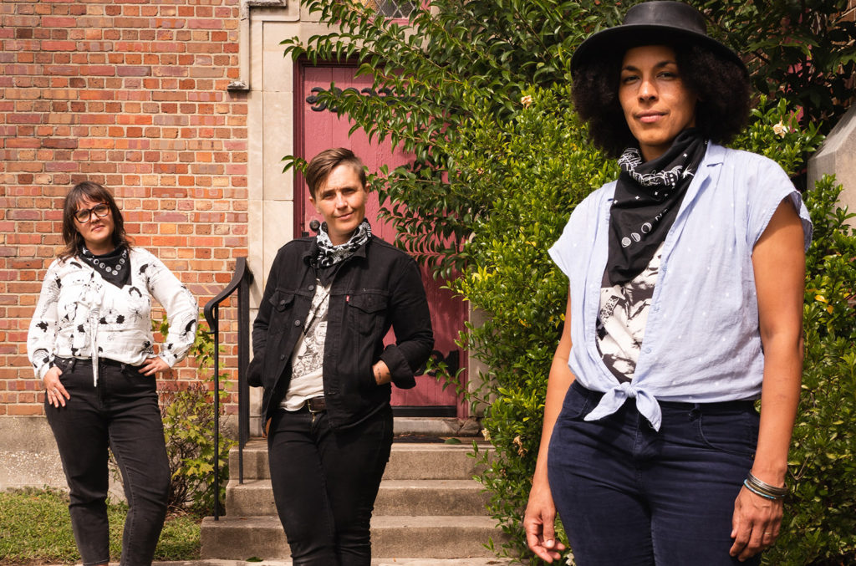Country Soul Songbook Summit Entertains, Informs
By James Barker, Staff Writer

Country Soul Songbook Summit was a four-day music festival and conference aiming to spotlight marginalized artists across country and Americana music. The summit took place from Oct. 15 to 18 through a livestream. Although the conference has ended, registration is still open to access exclusive content. We are always incredibly excited about anything that aims to lift up queer voices in country music, so here are our main takeaways from the event.
Rooted in intersectional and anti-racist principles, this event was unapologetically queer — queer about genre and rejecting the narrow confines of what the country music industry sells us. The Country Soul Songbook Summit at its core is about widening access, acknowledging the lineage of LGBTQ+ people and people of color in the genre and materially supporting these artists.
I’m going to focus mainly on the “90s Country is Actually Gay as Hell” panel and the “Gay Ole Opry” performances. While these two panels focus on queerness in country music, the importance of intersectionality and challenging racism and white supremacy was integrated throughout.
People of color and LGBTQ+ people have always been part of country music, participating as artists and audiences. The industry cynically appropriates aspects of these cultures and communities and then refuses to acknowledge them, a point eloquently expressed by Dustin Reams (of the House of Coxx drag family) and Kym Register on the fabulous “90s Country is Actually Gay as Hell” panel.
In the panel House of Coxx and Neon Boots discussed a number of 90s country music videos and drew attention to their homoerotic and camp elements. Videos included Shania Twain, Wynonna, The Chicks and Dwight Yoakam, as well as an 80s throwback to Ned Sublette’s “Cowboys are Frequently Secretly Fond of Each Other.” Although it would have been good to have had some videos from LGBTQ+ artists of the period (k.d. lang and Chely Wright spring to mind), the point that 90s country appropriated queer culture is well articulated. The optimistic implication of this is perhaps that through making this more visible, there is now an opportunity to open up the genre and industry further.
If social justice was not a compelling reason enough to open up country music, then “Gay Ole Opry” showed us just what music we risk losing. The “Gay Ole Opry Festival” started in Brooklyn in 2011, hosted by Karen Pittelman (of Karen and the Sorrows) and has played a key role in supporting the queer country community there. The summit featured an hour of “Gay Ole Opry” performances that showcased the depth and variety that queer country artists have to offer.
The performers featured are fearless in confronting politics and social injustices in their music, particularly as these are experienced in day to day life. Julian Talamantez Brolaski’s intricate storytelling describes the “coronavirus blues” and what that means for our closest relationships, having to “stay six feet away from my lover” as well as using the song to challenge racism.
In a similar vein, Luisa Lopez’s “They Ain’t Gonna See Me Coming: An American Western” is particularly pertinent to this time, when we’re reckoning with violence legacies of hatred, racism and white supremacy. Lopez has a particular knack for expressing wider political statements in a way that resonate with the listener on an almost intimate level.
Other songs engage even more with interpersonal relationships while maintaining their political edge. Hen in the Foxhouse’s “A Little More Genuine” confronts experiences of transphobia from a former partner. Listening to their voice is both poignant and joyous, as if to make it clear that as much as this oppression must be directly addressed, it does not define them.
Towards the end of the hour, we were treated to Amina Shareef Ali, whose songs showcase both wit and vulnerability demonstrating the compelling voices within queer country. Karen Pittelman finishes the hour in a set that showcases her unique and powerful voice that is both old-school and modern — a beautiful but tragic reminder of what country radio is not playing.
Pittelman also took the moment to talk about the Change Country Pledge asking people within the industry to pledge access, resources and opportunities to support BIPOC musicians and professionals. You can find out more about the pledge here. This is an important reminder for queer country platforms to be intersectional and to ensure people of color are a part of them.
The Country Soul Songbook Summit has opened up vital conversations as well as helped sustaining the diverse country and Americana community. We dare to hope that country is changing for the better, and here at Country Queer, we will be part of this change.